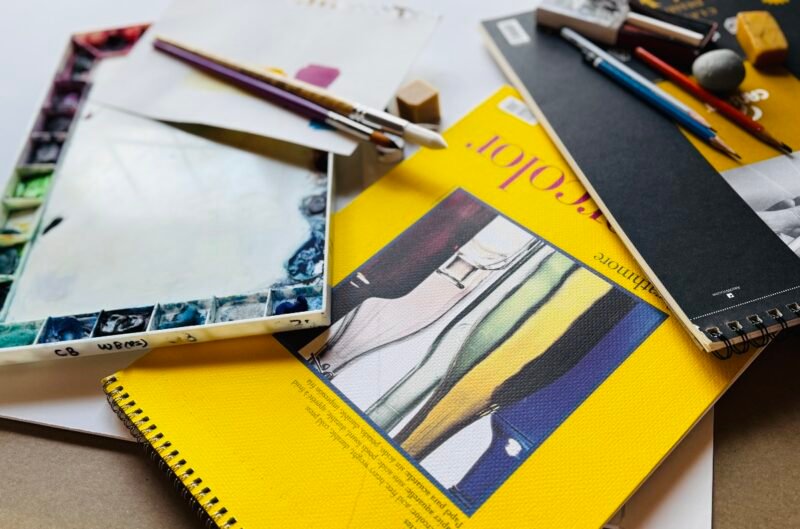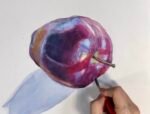
Basic Art Supplies
At this stage, the focus is on affordability and functionality—getting started without overspending. That’s why I recommend opting for student-grade supplies, which provide a good balance of quality and cost.
Another great tip is to repurpose household items to save money. A plastic container or mason jar works perfectly as a water cup, and grocery packaging, like bakery containers, can serve as a makeshift palette. These simple alternatives keep costs low while still giving you everything you need to begin your creative journey.
As your skills develop, you can gradually upgrade to higher-grade or professional materials for better results and a more refined experience. I’ll share more specific material recommendations in future lessons to help guide you through this progression.
Basic Drawing Supplies
- Graphite Pencils: A range of hardness (HB, 2B, 4B, 6B) for varied linework and shading. If choosing just one, opt for 4B.
- Sketchbook or Drawing Paper: Choose medium-weight (70–100 lb) paper for general sketching and drawing. A recommended minimum size is 11×14 inches or larger.
- Erasers: Include a kneaded eraser for blending and subtle corrections and a standard eraser for precise removal.
- Blade (preferred) or Sharpener
- Optional: Charcoal, Conté crayons, ink, and fineliner pens.
Basic Painting Supplies
- Paints: Start with watercolor or acrylics.
- Brushes: Synthetic brushes in round, flat, and detail sizes (e.g., sizes 2, 6, 10).
- Surfaces: Stretched canvases, canvas panels, or heavy watercolor paper (140 lb+).Palette: A simple plastic palette or disposable paper palette for mixing colors.
- Cleaning Supplies: Rags, paper towels, jars for water, and mild soap for brush care.
Shared Essentials
- Ruler/T-square: For perspective lines and technical sketches.
- Storage: A portable case or organizer to keep supplies accessible.
- Masking Tape: Helps create clean edges and protect paper.




